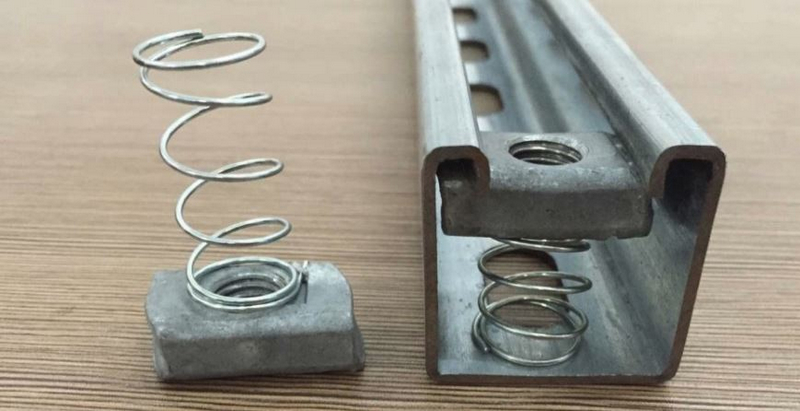Release date: 2016-05-31
Recently, two studies have revealed harmful side effects associated with antibiotics, including damage to the body's immune system and memory problems caused by the loss of growth of newborn brain cells.
Related research reminds us that while using antibiotics to fight off the body's diseases, we should also consider some side effects of antibiotics. The researchers believe that if antibiotics are used under inappropriate conditions, it may do more harm than good, one of which That is, we always listen to some advice from doctors, but in fact, in this case, our use of antibiotics may bring some unnecessary side effects.
Both studies have found that antibiotics can kill microbial flora in the intestines and cause health problems. The use of antibiotics can interfere with the balance of the intestinal microflora, leading to many different microbial deaths. First, the first research paper published in the international journal Science Translational Medicine , researchers from the Memorial Sloan Kettering Cancer Centre in New York, USA, conducted research on 857 patients undergoing hematopoietic stem cell transplantation. Antibiotics are often given to patients to inhibit or treat infections associated with hematopoietic stem cell transplantation, but the researchers found that the health of the patient's body is greatly altered by the use of different types of antibiotics.
In the article, the researchers examined the 12 most common antibiotics and found that the combination of the antibiotic piperacillin and tazobactam, and the combination of imipenem and cilastatin, can lead to high-risk inflammatory conditions in patients. , that is, graft-versus-host disease (GVHO), which is a major factor limiting the clinical therapeutic effect.
The researchers believe that these special antibiotics in the patient's gut microflora may undergo "mass migration", in a special way to damage the body's immune system, and the researchers also found in the same experiment in mice. Similar results as above.
Recently, scientists at the University of Southampton in the United Kingdom will test the role of Chinese herbal medicine in the treatment of recurrent urinary tract infections to study whether Chinese herbal medicine can be used instead of antibiotics to treat such symptoms. This is the first time in the UK that a clinical trial study of Chinese herbal medicine has been approved. ( Related reports: British will test Chinese herbal medicine instead of antibiotics )
The clinical trial was double-blind (both subjects and investigators did not understand the trial grouping, the study designer arranged and controlled all trials), randomized trials, and were funded by the National Institutes of Health. According to the official website of the University of Southampton, 80 women will participate in this experiment, and they have had at least 3 symptoms of urinary tract infection in the past year. These subjects will either receive a "personalized" Chinese herbal medicine prescribed by Chinese medicine practitioners, or will receive a "standardized" herbal prescription prescribed by a primary care physician for a treatment period of 16 weeks.
In another study published in the Cell Reports magazine, researchers from the Max-Delbrueck Center for Molecular Medicine in Germany investigated the effects of broad-spectrum antibiotics on the body of mice by studying mice, and broad-spectrum antibiotics can kill them. Many different types of microbial flora, and later researchers found that the development of brain cells in the hippocampus of mice is reduced, while the hippocampus of the brain is responsible for the memory and control of the nervous system.
The researchers found that when performing memory tests, these mice performed poorly, and the number of monocytes in the mouse body was small, that is, the number of white blood cells that resisted the virus was small; when the antibiotic use in mice stopped, The mouse's brain can return to its previous state.
Previously, a study published in The BMJ magazine pointed out ( relevant reports: BMJ focus: use of early antibiotics or increase antibiotic resistance in children ) , antibiotic resistance in children with urinary tract infections The incidence is getting higher and higher, and this may make many antibiotics in first-line therapy not work effectively. International antibiotic resistance is considered to be a threat to the health of the human body. Throughout the world, children are a group of people who frequently use antibiotics, and frequent intake of antibiotics also increases antibiotic resistance in adult individuals.
In both studies, the researchers revealed their latest findings that antibiotics can cause damage to the body's immune system and delay the growth of brain cells. Researchers believe that more in-depth research and testing are needed later. In this way, we can understand more deeply the harmful side effects of common antibiotics on the body; of course, based on the current research results, the researchers remind everyone that when using antibiotics, they need to be considered very carefully and must not be overused.
Source: Bio Valley
Solar Energy Hardwares
Channel nuts are used with Channel Support Systems. The grooves along the edges act as small teeth that can lock onto the channel when tightened. Channel systems are designed for multiple applications, including supporting containment and pipe brackets for all types of electrical and mechanical installations and are a key part of making sure all the infrastructure stays together.
Yokelink Channel Nuts made by carbon steel or Stainless Steel. Nut size 34.5X19 mm, thickness could be 6 mm, 8mm, 9mm, 10mm, 12mm. Zinc plated or Hot Dip Galvanized finish. For different applications, you need different types of nuts. All Yokelink's channel nuts are available in M6, M8, M10 and M12 .Find out from us for the different variations of channel nuts for your application.

Solar Energy Hardware,Spring Channel Nut,Solar Mounting Channel Nut,Stainless Steel Spring Nut
Ningbo Yokelink Machinery Co.,Limited , https://www.yokelink.com